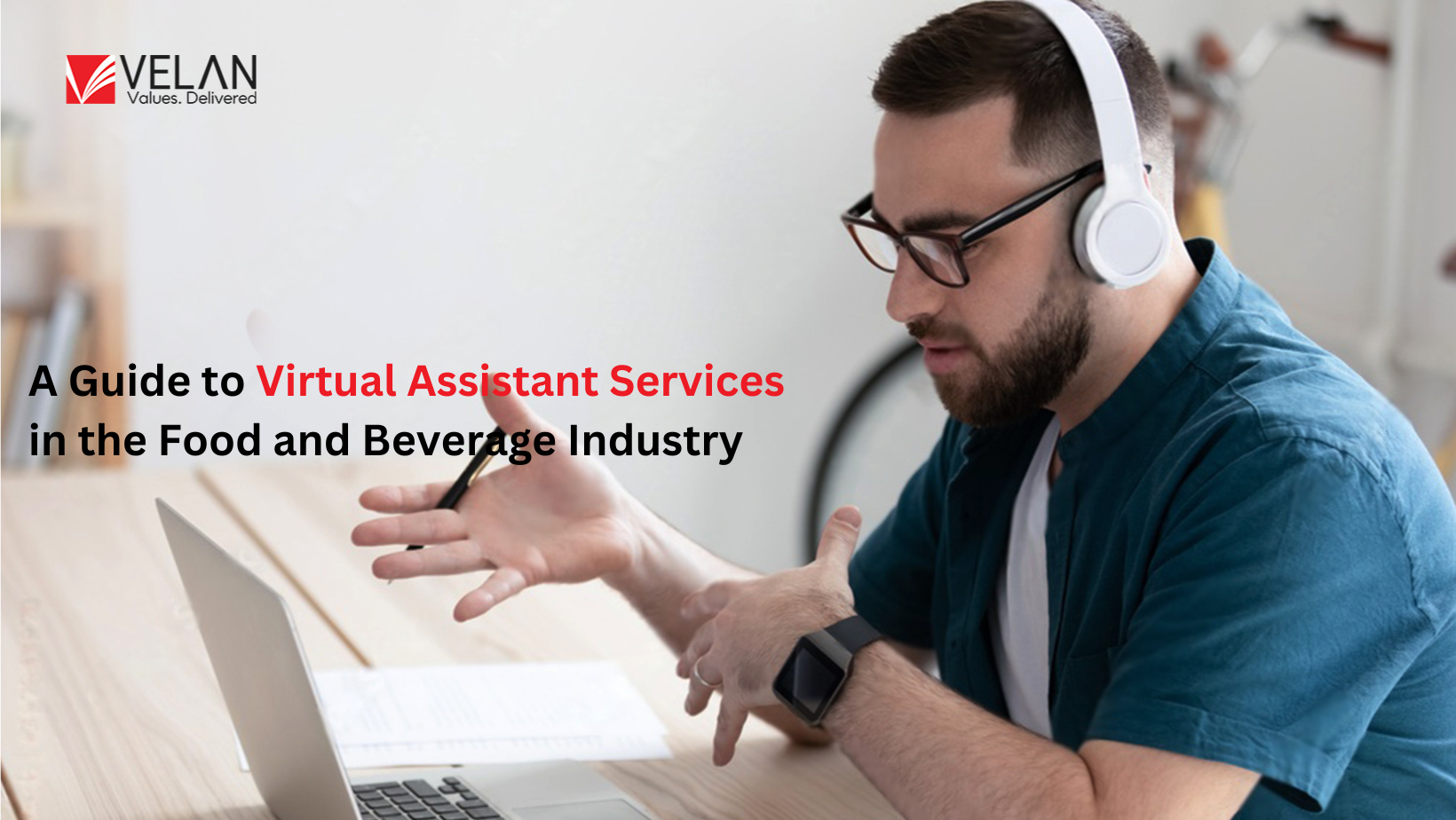The food and beverage sector are renowned for its dynamic atmosphere, perpetual advancements, and fierce market rivalry. Businesses in this industry must continuously optimize their operations and adjust to new trends in order to remain competitive. Utilizing virtual assistant services, which can offer numerous advantages, including cost savings, increased efficiency, and enhanced customer experiences, is one method to accomplish this. Virtual assistants are revolutionizing the food and beverage industry in a variety of ways, including in the areas of human resources, scheduling, and complete franchise administration.
The increasing demand for virtual support within the food and beverage sector
The food and beverage sector is not unfamiliar with difficulties such as volatile consumer tastes, intricate supply networks, and substantial staff attrition. In an effort to confront these challenges directly, the demand for virtual assistance has increased dramatically. Organizations can optimize daily operations, reduce administrative expenses, and enhance customer service with the assistance of virtual assistants. Given their capacity to operate round the clock and handle numerous responsibilities concurrently, these digital assistants are rapidly establishing themselves as essential resources for organizations operating in this industry.
Virtual assistants have the potential to offer indispensable assistance to small and medium-sized enterprises (SMEs) that may be financially constrained from employing full-time personnel for specialized positions. By delegating administrative and operational responsibilities to virtual assistants, these organizations are able to concentrate on their fundamental strengths and provide outstanding client experiences. Moreover, by using virtual assistants enabled by AI, food and beverage companies can capitalize on state-of-the-art technology in order to maintain a competitive edge.
The latitude that virtual assistants provide enables organizations to scale their services in accordance with their requirements. This is particularly advantageous in a sector marked by annual variations in consumer demand. Virtual assistants can facilitate the management of business fluctuations, enabling organizations to effectively allocate resources and sustain a superior standard of service even during periods of high demand.
Additionally, virtual assistants can assist food and beverage companies in maintaining compliance with nutritional labeling requirements and food safety guidelines, which are constantly evolving. By remaining current on industry standards, organizations can prevent expensive fines and guarantee consistent adherence.
With an increasing number of organizations coming to acknowledge the benefits of virtual assistants, it is anticipated that their implementation will further expand in the future. By providing strategic support and automating routine duties, these digital employees are reshaping the food and beverage industry.
Scheduling Food and Beverage Virtual Assistant Services
Scheduling productivity is critical to ensuring the efficient administration of any food and beverage company. Assisting in the coordination of staff schedules and the management of reservations are both tasks that virtual assistants can streamline, leading to increased productivity and customer satisfaction.
The capability of virtual assistants to automate repetitive duties, such as updating and creating employee schedules, is one of their primary advantages. This practice not only optimizes time management but also mitigates error potentialities, thereby guaranteeing that organizations possess the appropriate personnel on hand precisely when required.
The utilization of virtual assistants in the management of reservations and appointments can reduce the probability of overbooking and maximize table allocation. Through the expeditious and proficient resolution of customer inquiries, virtual assistants have the potential to augment the overall dining experience.
Additionally, virtual assistants can be utilized to oversee overtime, manage time-off requests, and track employee attendance. This practice aids organizations in the maintenance of precise records and the optimization of payroll operations, ultimately resulting in enhanced employee morale and decreased attrition.
Through scheduling data analysis, virtual assistants can offer significant insights into the performance of an organization. This can assist food and beverage companies in identifying trends, such as popular menu items and peak hours, allowing them to make decisions that enhance their bottom line based on data.
The following are some of the virtual assistant services that can be utilized to schedule restaurants:
- Scheduling of personnel and shift administration
- Managing reservations and bookings
- Monitoring and tracking of attendance
- Overtime administration
- Request for time off processing
- Analysis and reporting of data
The incorporation of a virtual assistant into restaurant scheduling software can augment the level of communication among restaurant personnel and facilitate the scheduling procedures. Employees can utilize a centralized portal to view their schedules, request time off, and obtain real-time updates regarding any modifications. This not only facilitates the prevention of perplexity and miscommunications that may have an adverse effect on day-to-day operations but also enhances transparency.
As per the statement made by Synergy Suite, a provider of restaurant scheduling software accessible to organizations and virtual assistants, “Our restaurant management software… enables employers to effortlessly oversee restaurant staffing while providing employees with enhanced schedule visibility and control—all from the convenience of their own devices.”
By transmitting automated reminders and notifications regarding forthcoming duties, virtual assistants guarantee that personnel are consistently updated and punctual. Effective communication is critical for the smooth administration of businesses with multiple locations or sizable teams, which may find this feature especially useful.
The utilization of virtual assistant services in the food and beverage industry has the potential to significantly enhance the effectiveness and precision of staff schedule management, reservation systems, and other critical operational facets. Virtual assistants can aid companies in this sector in attaining greater levels of customer satisfaction and operational success through the automation of repetitive duties and the provision of insightful recommendations.
